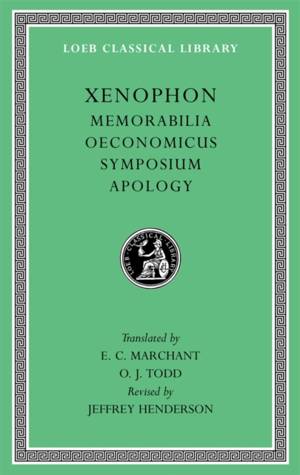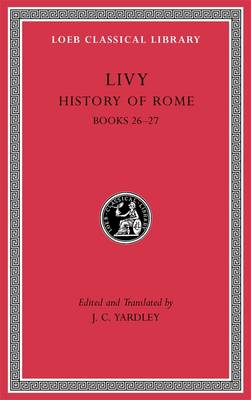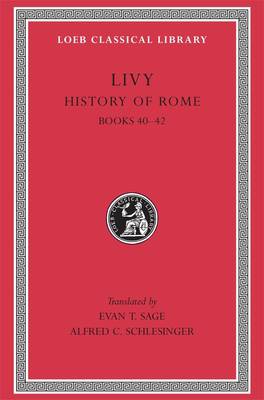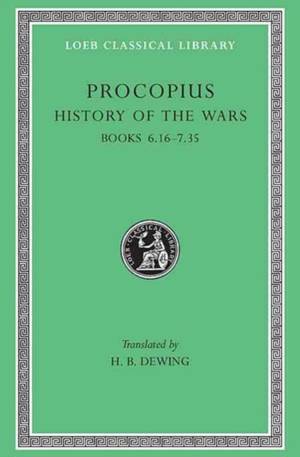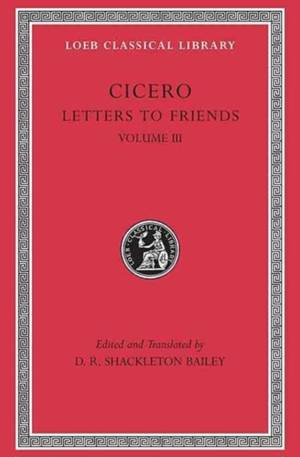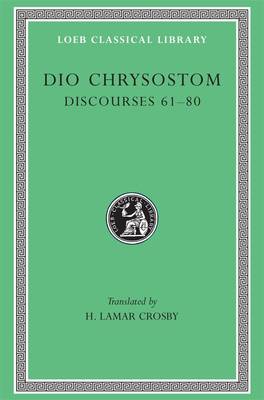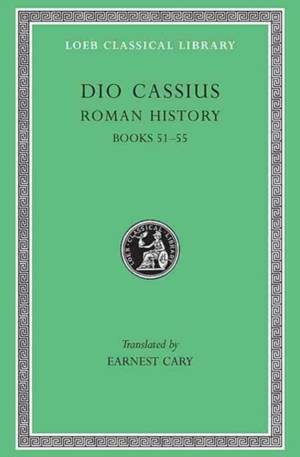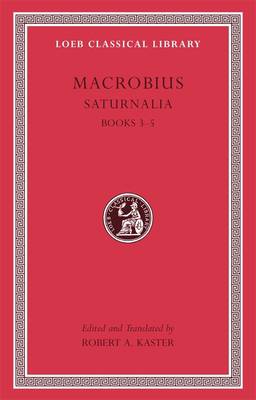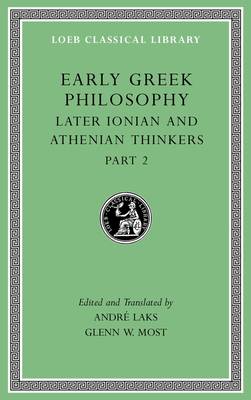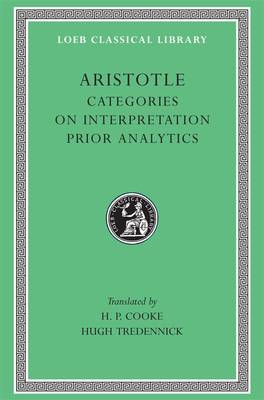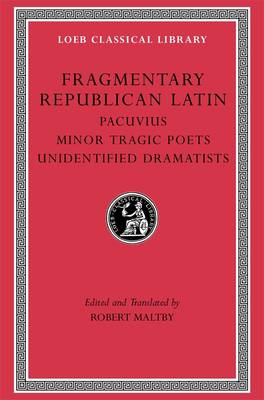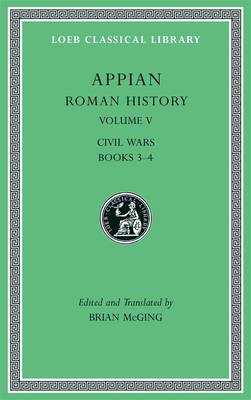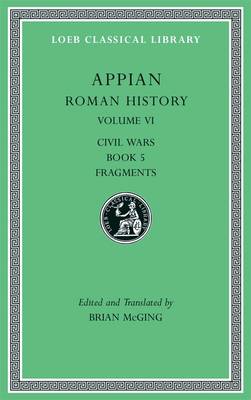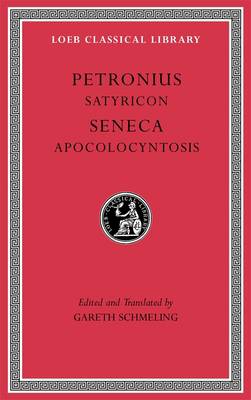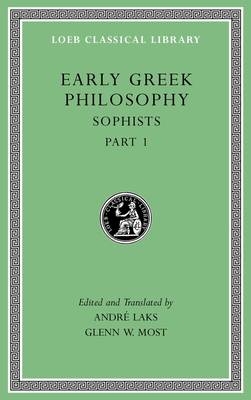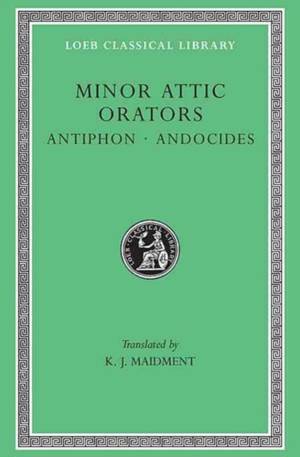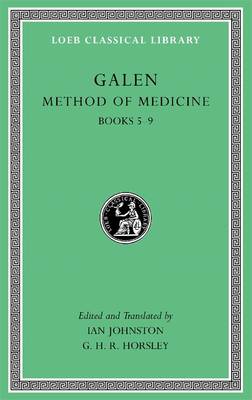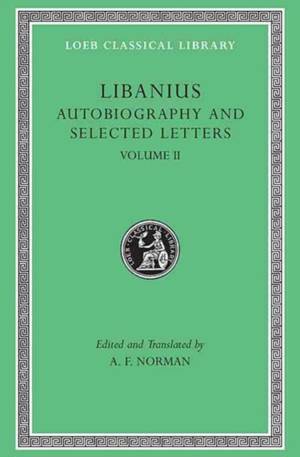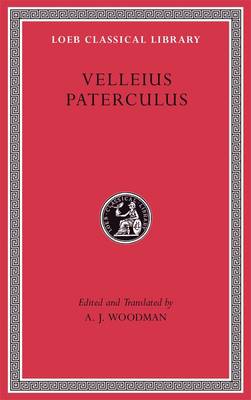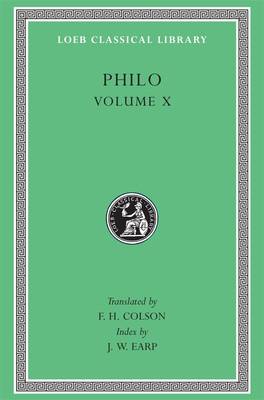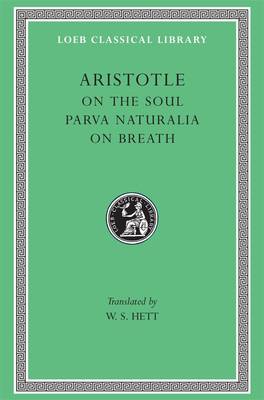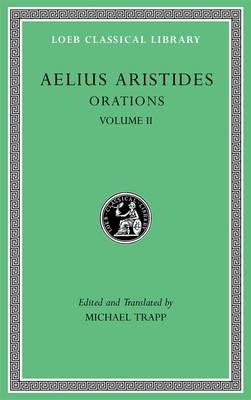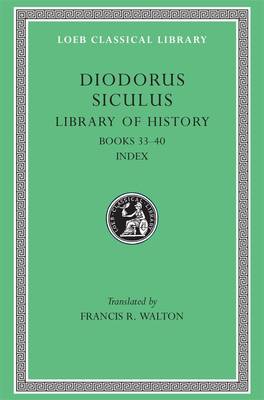
Je cadeautjes zeker op tijd in huis hebben voor de feestdagen? Kom langs in onze winkels en vind het perfecte geschenk!
- Afhalen na 1 uur in een winkel met voorraad
- Gratis thuislevering in België vanaf € 30
- Ruim aanbod met 7 miljoen producten
Je cadeautjes zeker op tijd in huis hebben voor de feestdagen? Kom langs in onze winkels en vind het perfecte geschenk!
- Afhalen na 1 uur in een winkel met voorraad
- Gratis thuislevering in België vanaf € 30
- Ruim aanbod met 7 miljoen producten
Zoeken
Reeksen: boeken uit de reeks Loeb Classical Library
-
Memorabilia. Oeconomicus. Symposium. Apology
Xenophon
- Hardcover | Engels | Loeb Classical Library | nr. 168
- Socrates without Plato. Xenophon (ca. 430 to ca. 354 BC), a member of a wealthy but politically quietist Athenian family and an admirer of Socrates, l... Lees meer
€ 32,94Levering 1 à 2 weken€ 32,94Levering 1 à 2 weken -
History of Rome, Volume VII
Livy
- Hardcover | Engels | Loeb Classical Library | nr. 367
- Rome, from the beginning. Livy (Titus Livius), the great Roman historian, was born at Patavium (Padua) in 64 or 59 BC, where after years in Rome he di... Lees meer
€ 42,95Levering 1 à 2 weken€ 42,95Levering 1 à 2 weken -
History of Rome, Volume XII
Livy
- Hardcover | Engels | Loeb Classical Library
- The only extant work by Livy is part of his history of Rome from the foundation of the city to 9 BC. Of its 142 books, 1–10, 21–45 (except parts of 41... Lees meer
€ 42,95Levering 1 à 2 weken€ 42,95Levering 1 à 2 weken -
History of the Wars, Volume IV
Procopius
- Hardcover | Engels | Loeb Classical Library
- History of the Wars by Procopius (late fifth century to after AD 558) consists largely of sixth-century military history, with much information about ... Lees meer
€ 42,95Levering 1 à 2 weken€ 42,95Levering 1 à 2 weken -
Letters to Friends, Volume III
Cicero
- Hardcover | Engels | Loeb Classical Library
- Cicero’s letters to friends span the period from 62 BC, when his political career was at its peak, to 43 BC, when he was put to death by the victoriou... Lees meer
€ 42,95Levering 1 à 2 weken€ 42,95Levering 1 à 2 weken -
Discourses 61–80
Dio Chrysostom
- Hardcover | Engels | Loeb Classical Library
- Dio Chrysostom (AD ca. 40–ca. 120) was a rhetorician hostile to philosophers, whose Discourses reflect political or moral concerns. What survives of h... Lees meer
€ 42,95Levering 1 à 2 weken€ 42,95Levering 1 à 2 weken -
Roman History, Volume VI
Dio Cassius
- Hardcover | Engels | Loeb Classical Library
- Dio Cassius (Cassius Dio), ca. AD 150–235, was born in Bithynia. Dio’s work is a vital source for the last years of the Roman republic and the first f... Lees meer
€ 42,95Levering 1 à 2 weken€ 42,95Levering 1 à 2 weken -
Saturnalia, Volume II
Macrobius
- Hardcover | Engels | Loeb Classical Library
- Saturnalia has been prized since the Renaissance as a treasure trove of otherwise unattested lore. Lees meer
€ 42,95Levering 1 à 2 weken€ 42,95Levering 1 à 2 weken -
Early Greek Philosophy, Volume VII
- Hardcover | Engels | Loeb Classical Library | nr. 530
- A major new edition of the so-called Presocratics. The fragments and testimonia of the early Greek philosophers (often labeled the 'Presocratics') hav... Lees meer
€ 42,95Levering 1 à 2 weken€ 42,95Levering 1 à 2 weken -
Categories. On Interpretation. Prior Analytics
Aristotle
- Hardcover | Engels | Loeb Classical Library
- Nearly all the works Aristotle (384–322 BC) prepared for publication are lost; the priceless ones extant are lecture-materials, notes, and memoranda (... Lees meer
€ 42,95Levering 1 à 2 weken€ 42,95Levering 1 à 2 weken -
Fragmentary Republican Latin, Volume VII
Pacuvius
- Hardcover | Engels | Loeb Classical Library
- Dilapidated dramas. The Loeb Classical Library series Fragmentary Republican Latin continues with Marcus Pacuvius (ca. 220-130), deemed by Cicero to b... Lees meer
€ 42,95Pre-order nu, verschijnt op 10/02/2026€ 42,95Pre-order nu, verschijnt op 10/02/2026 -
Roman History, Volume V
Appian
- Hardcover | Engels | Loeb Classical Library | nr. 543
- Rome's internal conflicts, from the Gracchi to the Empire. Appian (Appianus) is among our principal sources for the history of the Roman Republic, par... Lees meer
€ 42,95Levering 1 à 2 weken€ 42,95Levering 1 à 2 weken -
Roman History, Volume VI
Appian
- Hardcover | Engels | Loeb Classical Library | nr. 544
- Rome's internal conflicts, from the Gracchi to the Empire. Appian (Appianus) is among our principal sources for the history of the Roman Republic, par... Lees meer
€ 42,95Levering 1 à 2 weken€ 42,95Levering 1 à 2 weken -
Satyricon. Apocolocyntosis
Petronius, Lucius Annaeus Seneca
- Hardcover | Engels | Loeb Classical Library | nr. 15
- Two rollicking Roman satires. The Satyrica ( Satyricon liber ), a comic-picaresque fiction in prose and verse traditionally attributed to the Neronian... Lees meer
€ 42,95Levering 1 à 2 weken€ 42,95Levering 1 à 2 weken -
Early Greek Philosophy, Volume VIII
- Hardcover | Engels | Loeb Classical Library | nr. 531
- A major new edition of the so-called Presocratics. The fragments and testimonia of the early Greek philosophers (often labeled the 'Presocratics') hav... Lees meer
€ 32,95Levering 1 à 2 weken€ 32,95Levering 1 à 2 weken -
Minor Attic Orators, Volume I: Antiphon. Andocides
Antiphon, Andocides
- Hardcover | Engels | Loeb Classical Library
- Antiphon disliked democracy and was an ardent oligarch. Of his fifteen extant works three concern real murder cases. The others are academic exercises... Lees meer
€ 42,95Levering 1 à 2 weken€ 42,95Levering 1 à 2 weken -
Method of Medicine, Volume II
Galen
- Hardcover | Engels | Loeb Classical Library
- In Method of Medicine, Galen provides a comprehensive and influential account of the principles of treating injury and disease. Enlivening the detaile... Lees meer
€ 42,95Levering 1 à 2 weken€ 42,95Levering 1 à 2 weken -
Autobiography and Selected Letters, Volume II
Libanius
- Hardcover | Engels | Loeb Classical Library
- Libanius, one of the last great publicists and teachers of Greek paganism, has much to tell us about the tumultuous world of the fourth century AD. Hi... Lees meer
€ 42,95Levering 1 à 2 weken€ 42,95Levering 1 à 2 weken -
Velleius Paterculus
Velleius Paterculus
- Hardcover | Engels | Loeb Classical Library
- A Roman commander's comprehensive history of Rome. The histories of Velleius Paterculus chronicle the story of Rome and Roman culture from the fall of... Lees meer
€ 45,95Levering 2 à 3 weken€ 45,95Levering 2 à 3 weken -
Philo, Volume X
Philo
- Hardcover | Engels | Loeb Classical Library
- The philosopher Philo, born about 20 BC to a prominent Jewish family in Alexandria, was trained in Greek as well as Jewish learning. In attempting to ... Lees meer
€ 42,95Levering 1 à 2 weken€ 42,95Levering 1 à 2 weken -
On the Soul. Parva Naturalia. On Breath
Aristotle
- Hardcover | Engels | Loeb Classical Library
- Nearly all the works Aristotle (384–322 BC) prepared for publication are lost; the priceless ones extant are lecture-materials, notes, and memoranda (... Lees meer
€ 42,95Levering 1 à 2 weken€ 42,95Levering 1 à 2 weken -
Lucian, Volume I
Lucian
- Hardcover | Engels, Oudgrieks | Loeb Classical Library
- Antiquity's satirist supreme. Lucian of Samosata on the Euphrates (fl. AD 160-190) ranks among the most dazzlingly creative, virtuosic, and boldly ori... Lees meer
€ 42,95Pre-order nu, verschijnt op 27/02/2026€ 42,95Pre-order nu, verschijnt op 27/02/2026 -
Orations, Volume II
Publius Aelius Aristides Theodorus
- Hardcover | Engels | Loeb Classical Library | nr. 545
- Meticulous eloquence. Publius Aelius Aristides Theodorus was among the most celebrated, versatile, and influential authors of the Second Sophistic era... Lees meer
€ 35,95Levering 1 à 2 weken€ 35,95Levering 1 à 2 weken -
Library of History, Volume XII
Diodorus Siculus
- Hardcover | Engels | Loeb Classical Library
- Library of History is in three parts: mythical history to the Trojan War; history to Alexander’s death (323 BC); history to 54 BC. Books 1–5 and 11–20... Lees meer
€ 42,95Levering 1 à 2 weken€ 42,95Levering 1 à 2 weken







